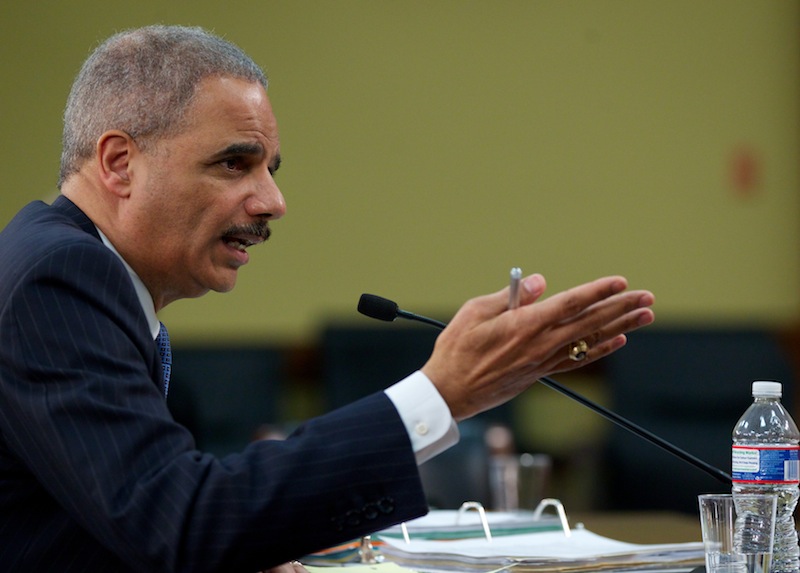At the risk of stating the obvious, one big reason the James Rosen and AP controversies have become front page news is that “the news” is a key stakeholder in the story itself. Replace ‘reporters from accredited outlets’ with ‘nihilistic hackers’ or ‘advocacy orgs’ and the tone of the coverage we’re reading, and questions we’re hearing, would be much, much different. Instead reporters are, quite naturally, behaving in both their normal journalistic capacities here and in their ancillary roles as trade association members — and so the whole thing has taken on much more valence with the press than we’ve come to expect when the DOJ is discovered taking liberties with its investigative powers.
That’s something everyone should consider the next time we learn a non-media figure has been subjected to secret, invasive federal subpoenas, etc. Until then, I’d note that in this case the coverage disparity is due in part to the fact that — to coin a recently misquoted White House official — the reporting does not reflect all relevant equities.
Stepping out of my own reporting shoes, I’d say there’s a wide spectrum between what reporters want — something approaching privilege for sources who break the law to publicize protected materials — and what many government secret-keepers might prefer — to make it illegal for journalists to obtain classified info except in wholly passive ways, or perhaps even to make publishing classified information illegal altogether.
Ambiguous as it is, the actual law reflects neither preference. Nor should it. But as a natural consequence there’s a lot of fighting now about whether it’s been applied appropriately. For myself, I’d say that what officials did to James Rosen falls on the wrong side of where I’d draw the line. Of the million shades of grey here, one of them covers the vast and murky terrain between cajoling sources and actively facilitating lawbreaking. I think the burden on federal law enforcement officials to demonstrate the latter should be very high before they start accusing reporters of criminal behavior in court. And in this case, if I were setting the standard, I’d say they didn’t meet it (though I don’t set the standard, and a federal judge apparently disagrees with me).
If the burden isn’t high, then the difference between elegant and sloppy tradecraft, or well-heeled and struggling media outlet, might well become the difference between journalistic triumph and jail time.
That’s a big problem. It needs to be addressed. But I think it can be addressed without questioning anyone’s motives or commitment to the First Amendment, or to national security, as the first orders of business.






